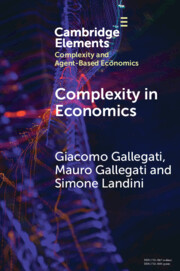2 results

Complexity in Economics
-
- Published online:
- 02 December 2024
- Print publication:
- 02 January 2025
-
- Element
- Export citation
Coupling methods and the storage equation
-
- Journal:
- Journal of Applied Probability / Volume 20 / Issue 2 / June 1983
- Published online by Cambridge University Press:
- 14 July 2016, pp. 436-441
- Print publication:
- June 1983
-
- Article
- Export citation

